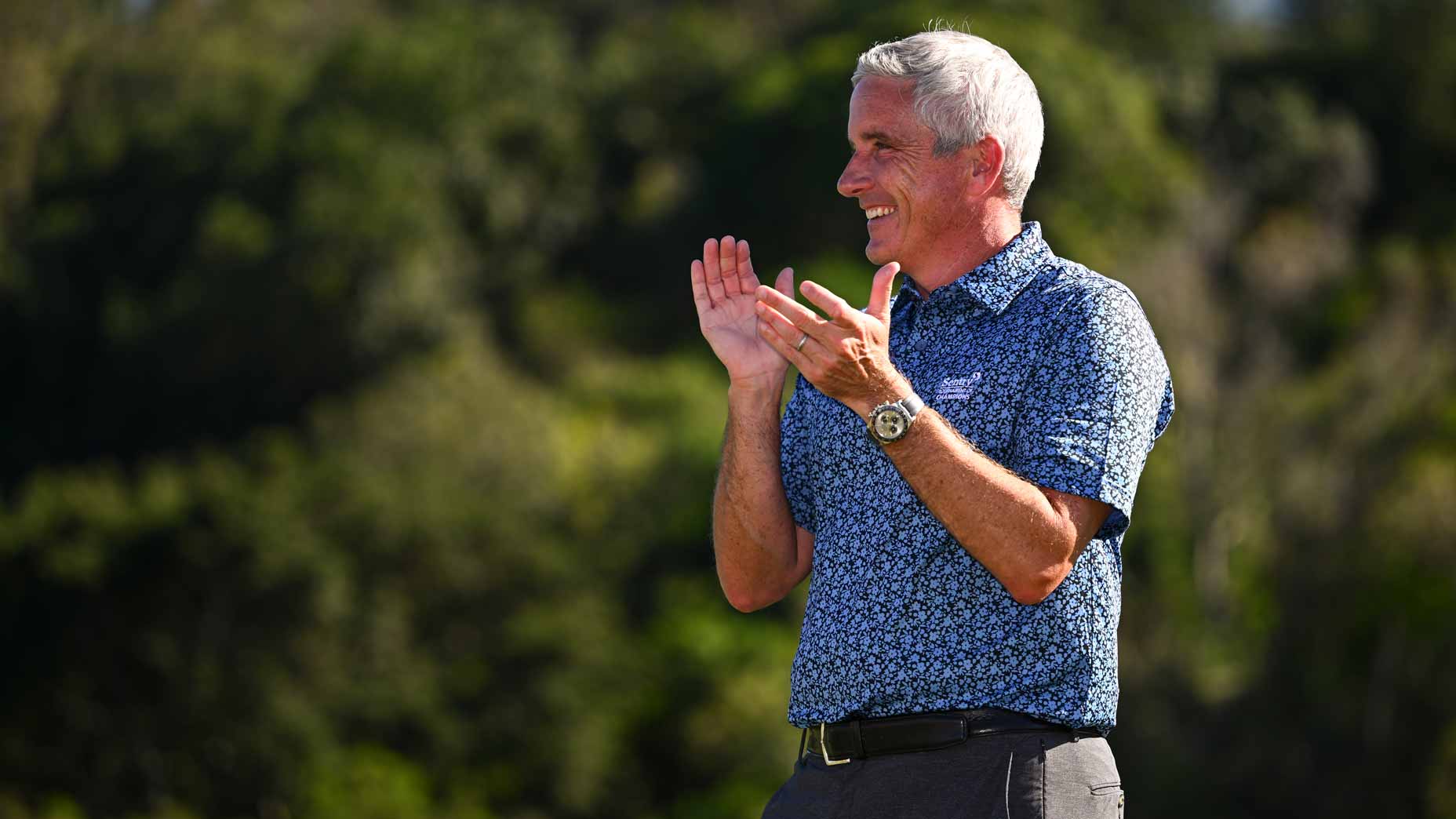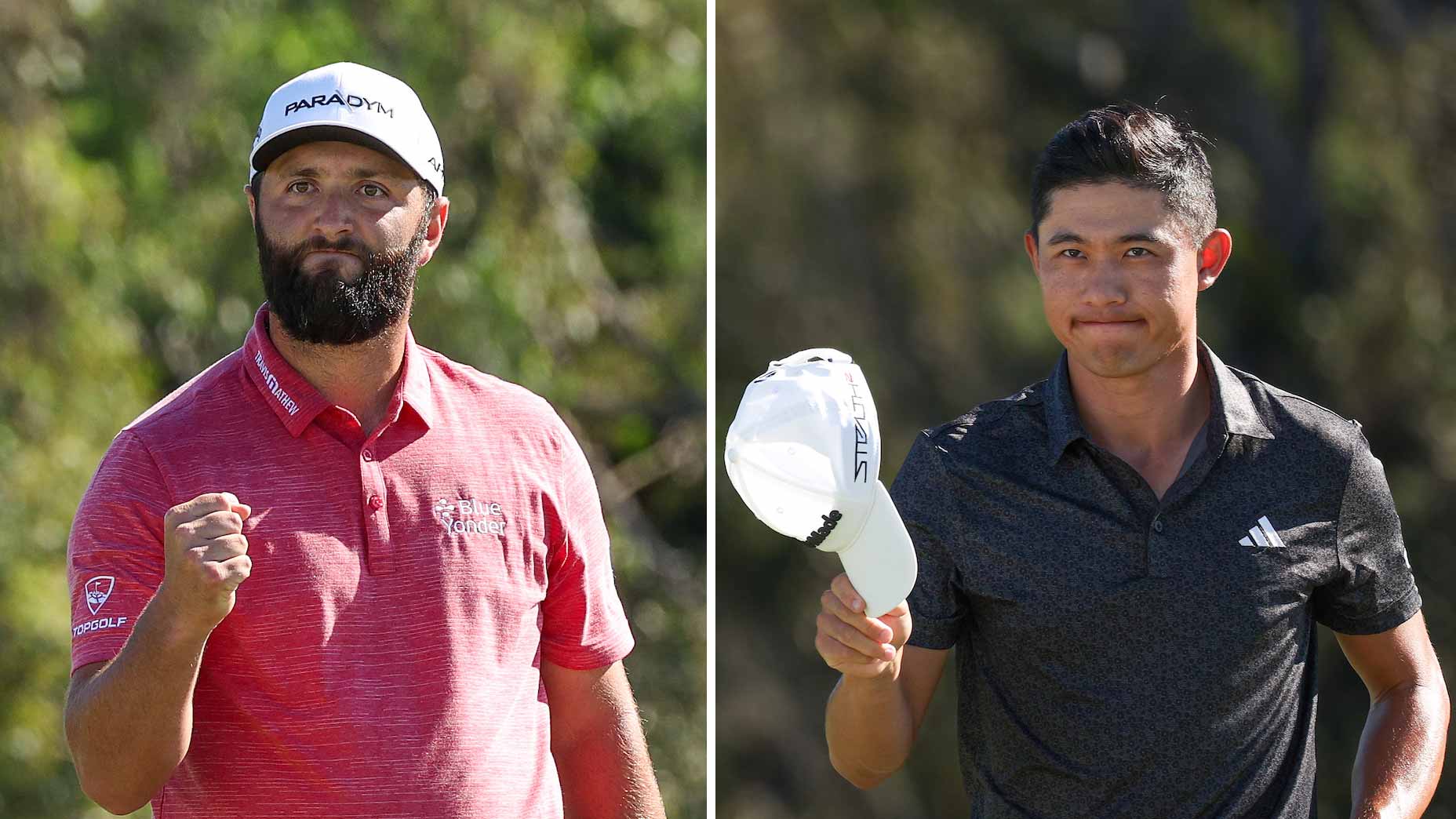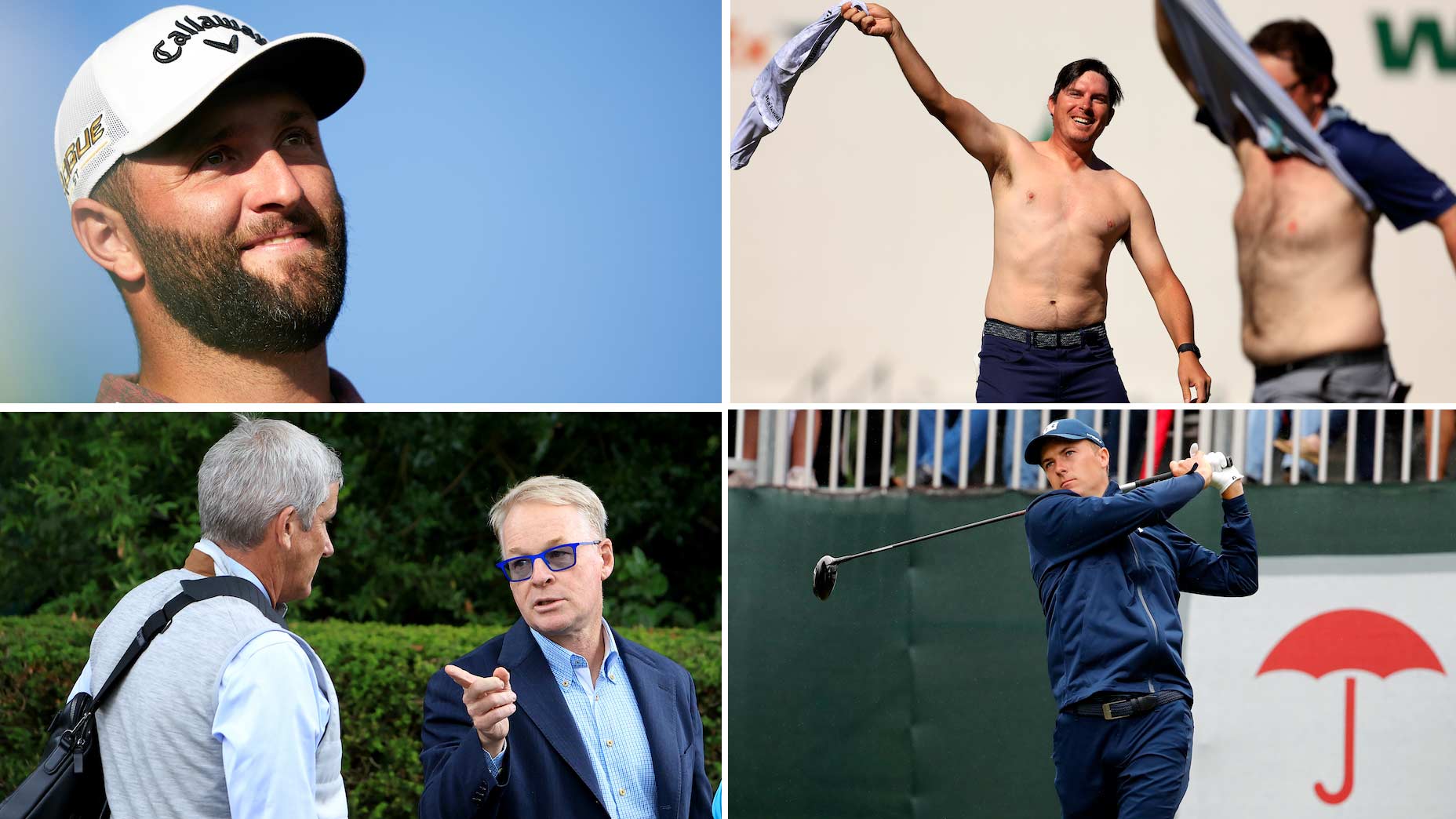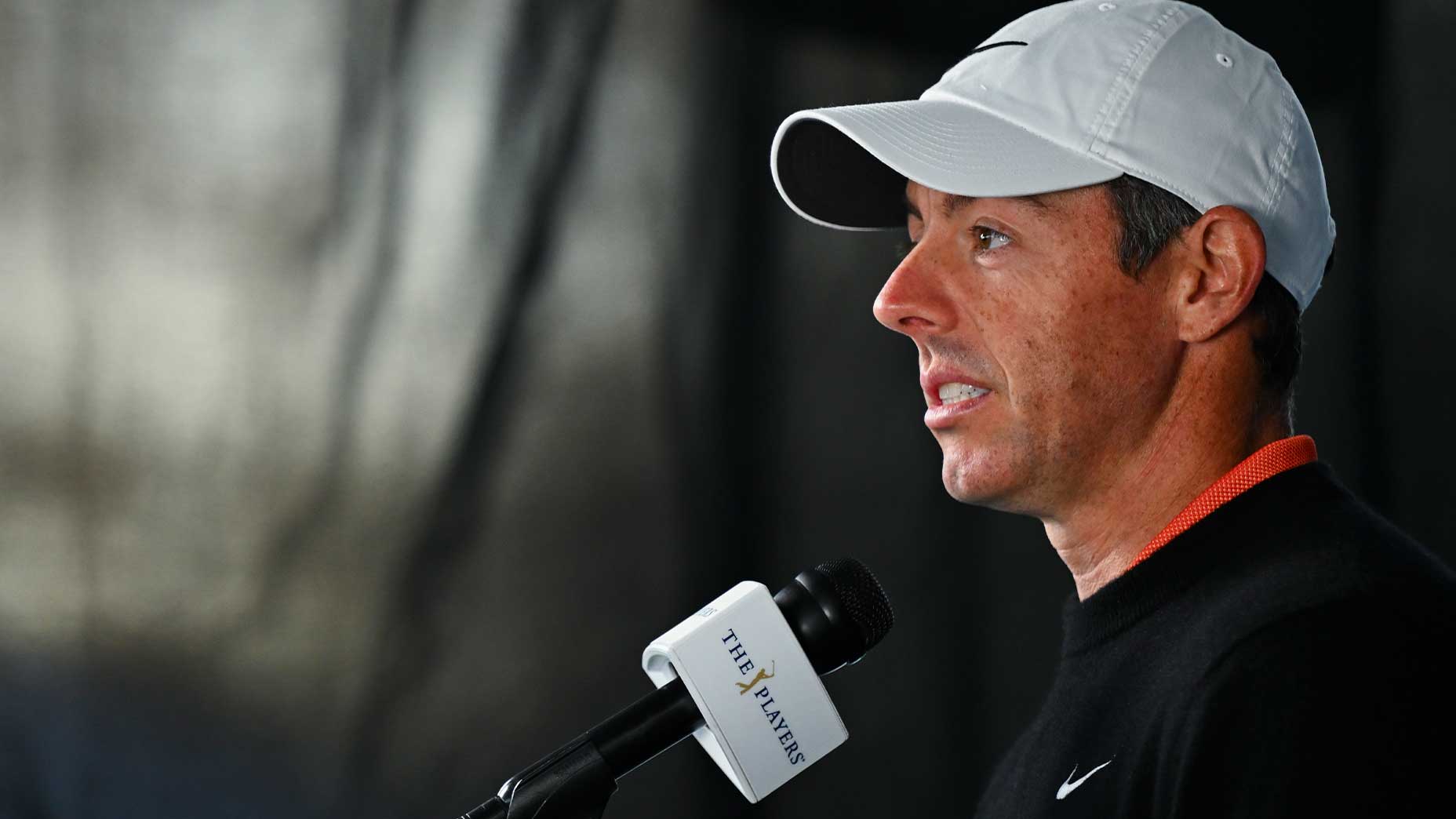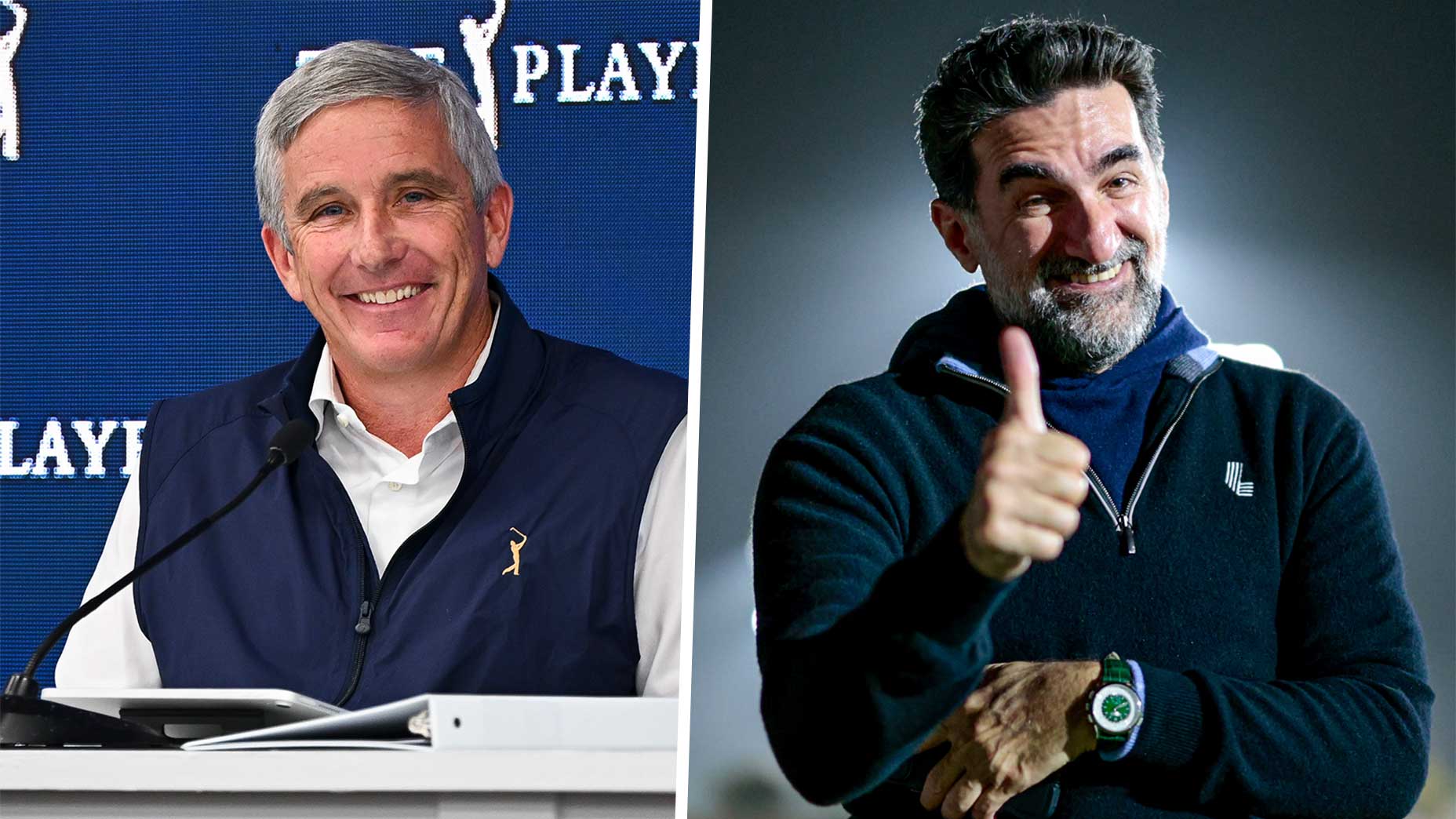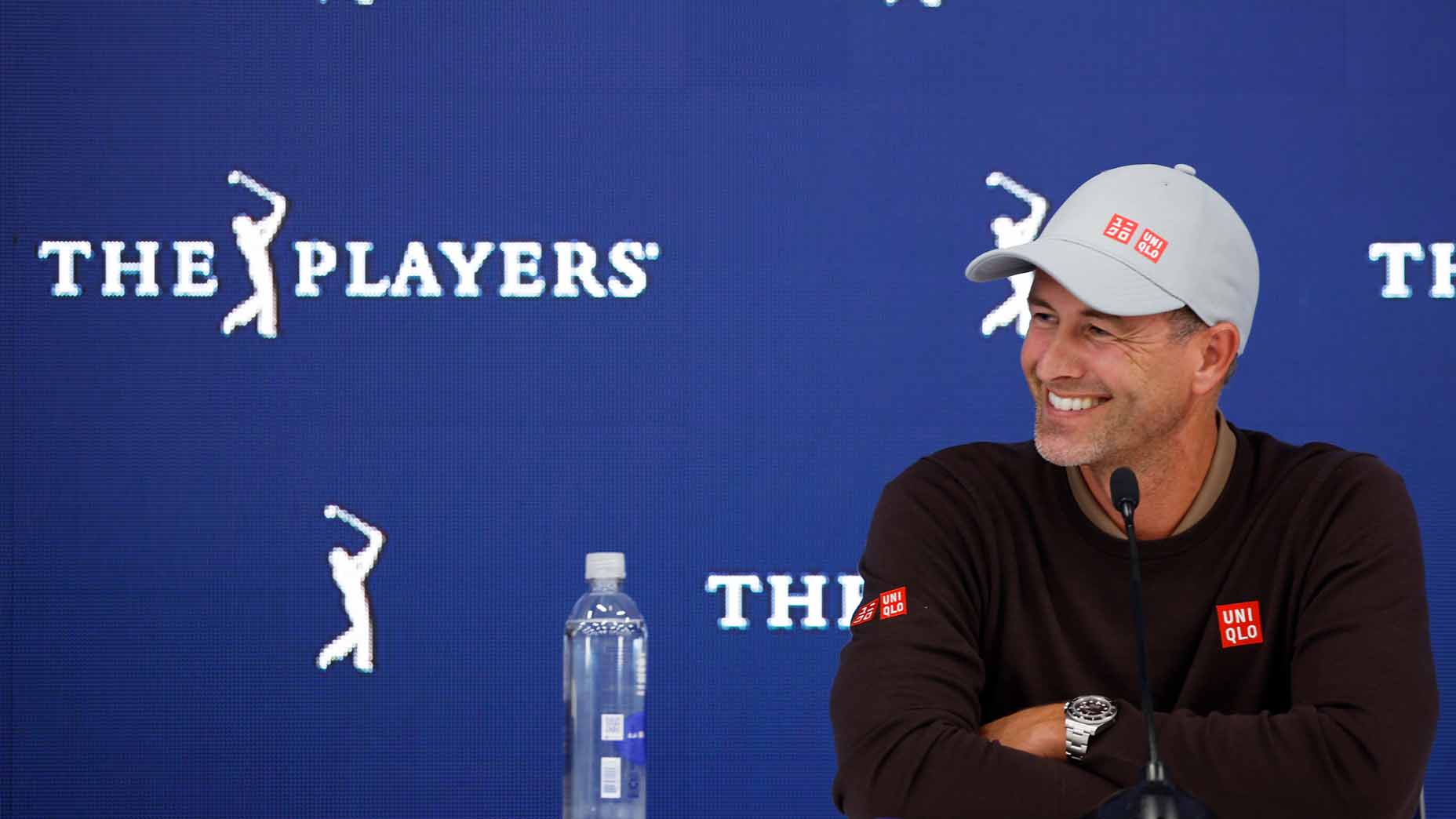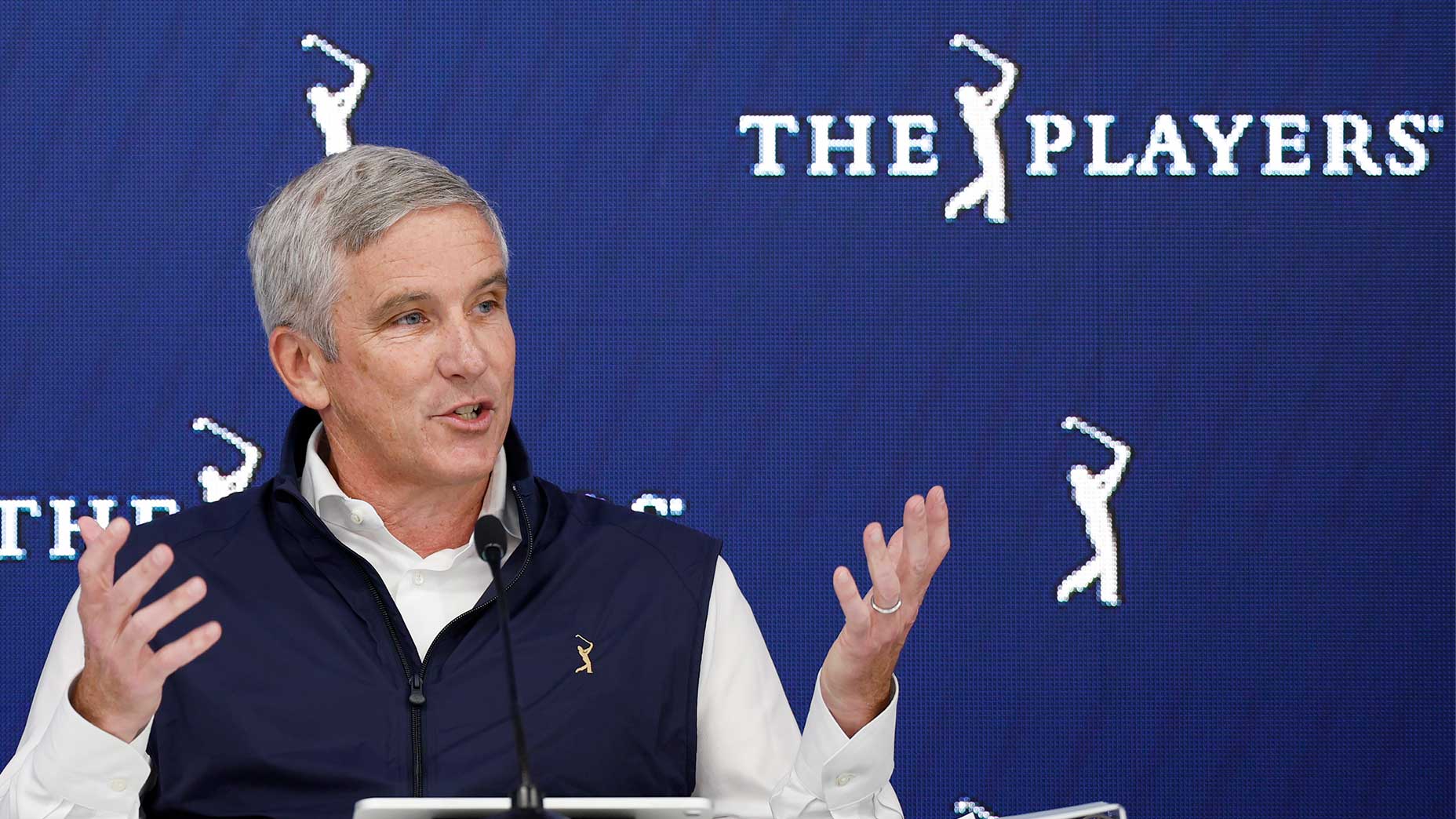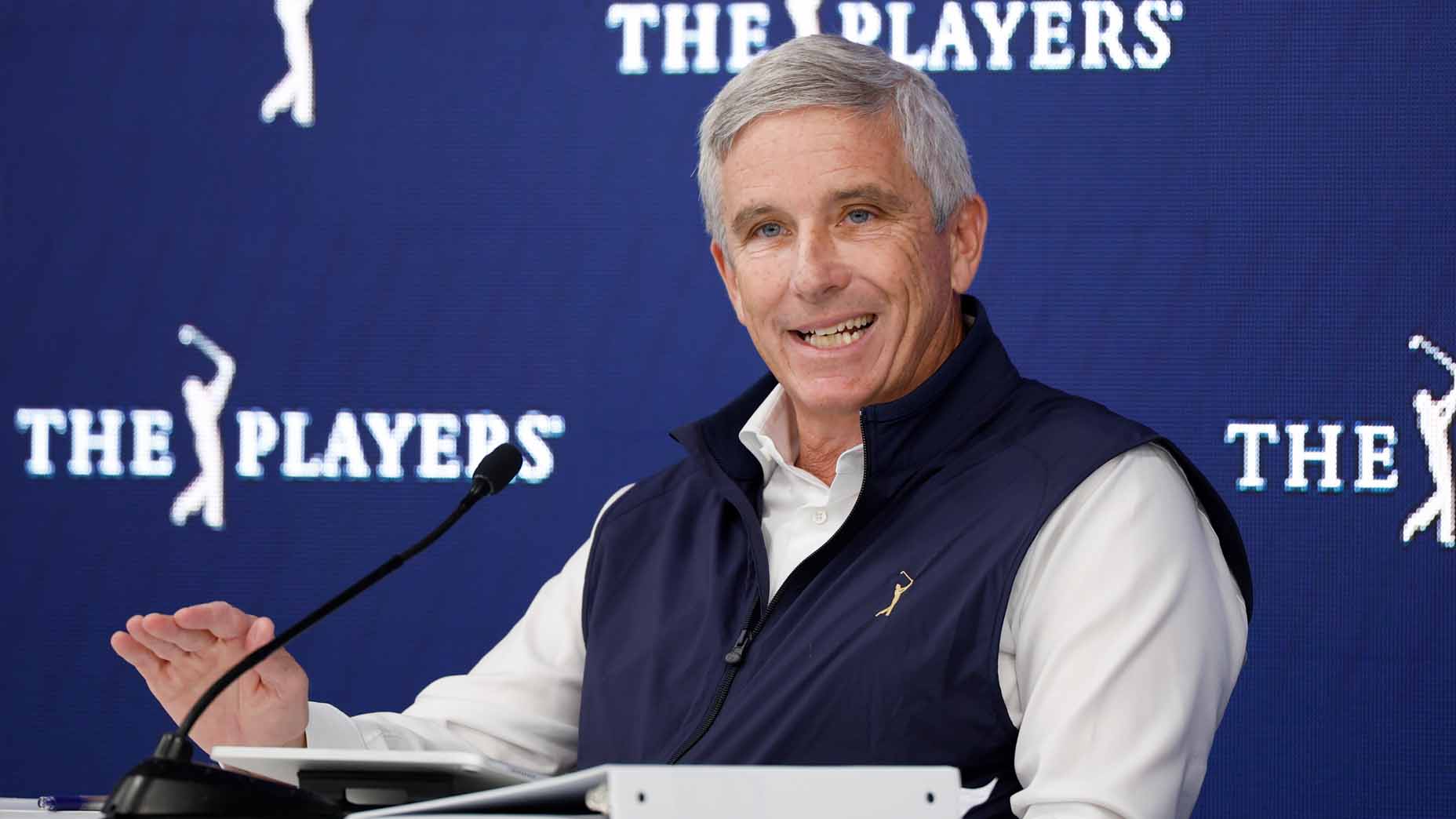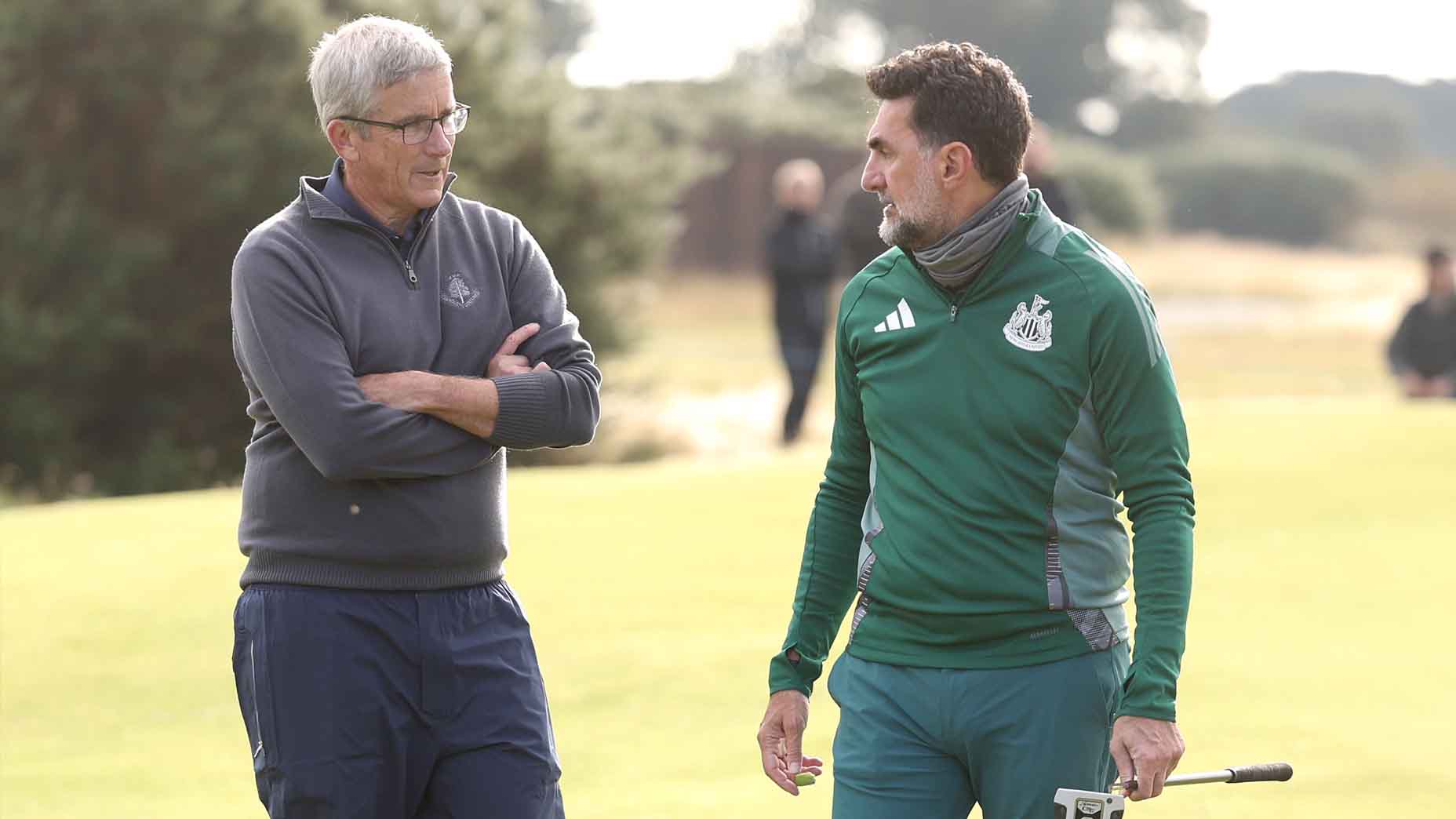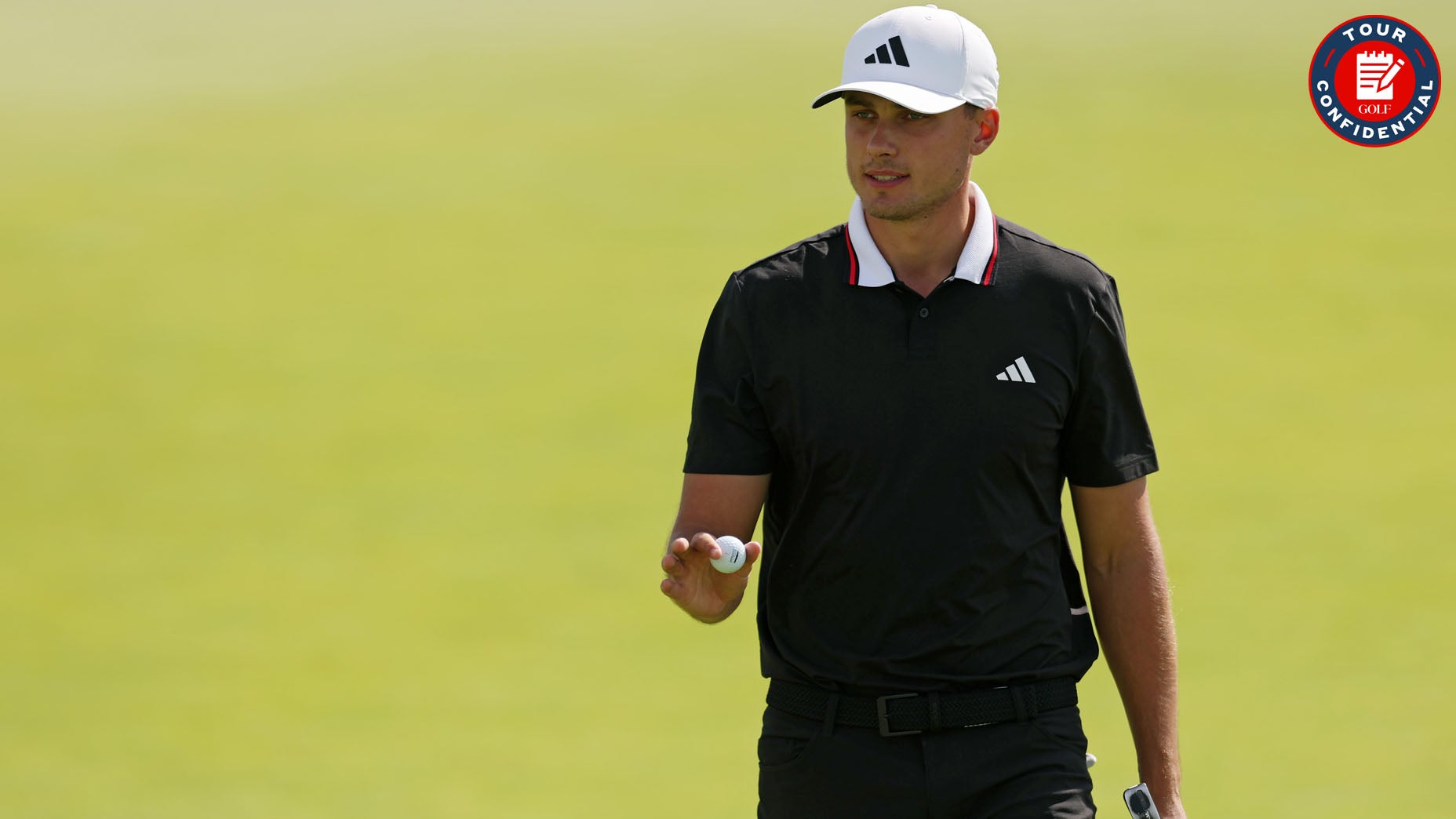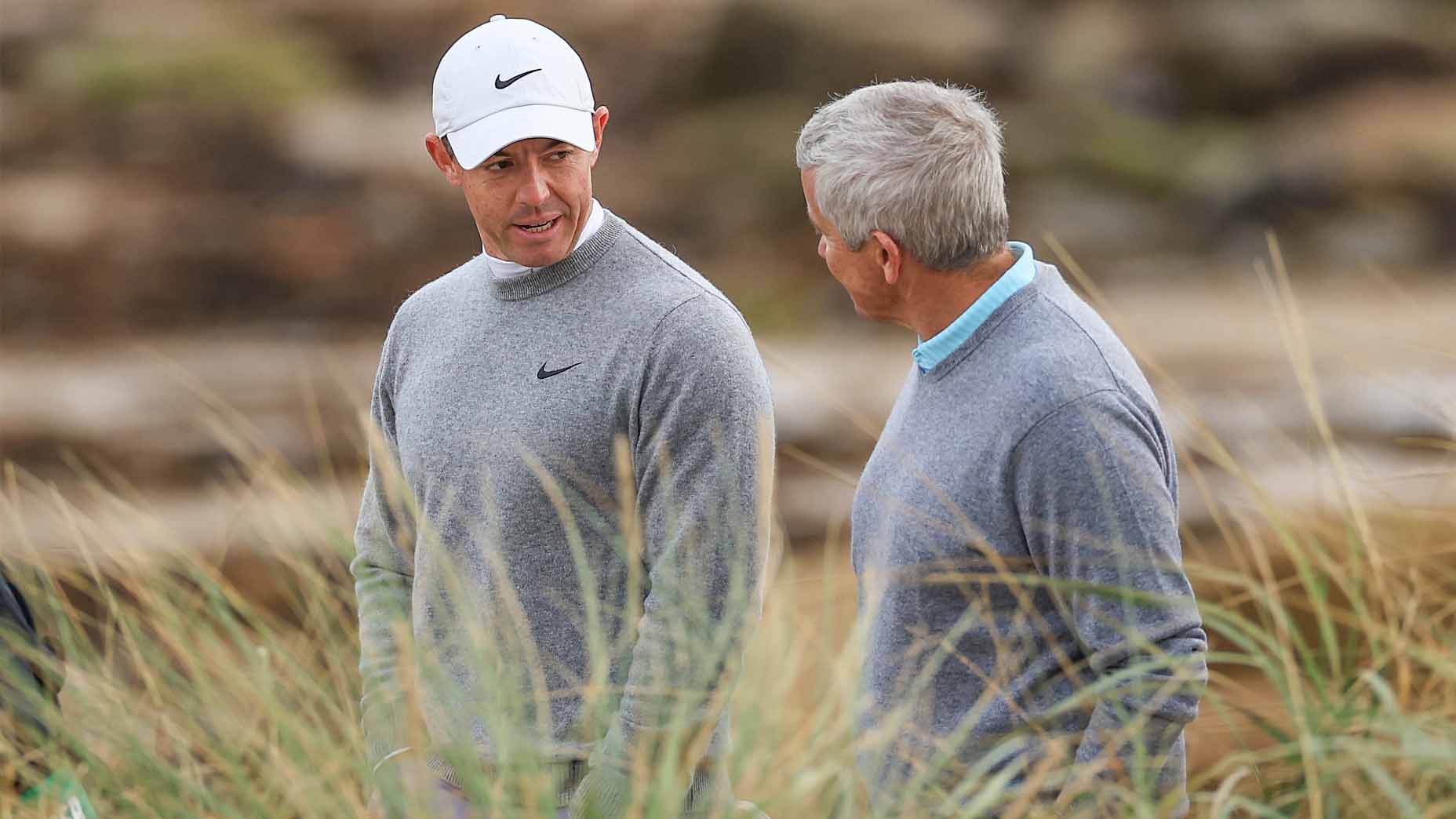KAPALUA, Hawaii — On Sunday morning at the Sentry Tournament of Champions, PGA Tour commissioner Jay Monahan met with credentialed media for a question-and-answer session.
He welcomed any and all questions, though he cautioned that due to ongoing litigation with LIV, he might not answer every one fully. That was his only preamble; then Monahan fielded queries for the next hour, touching on player releases, designated events, Tour finances, sports gambling, Greg Norman and more. In the process, we learned a little bit about how the Tour thinks. Here are 15 things we learned — or, at least, 15 things Monahan said.
1. The Tour granted every Saudi International request.
Monahan confirmed reports from earlier this week that a number of PGA Tour players have applied to play in this year’s Saudi International, an Asian Tour event held opposite the AT&T Pebble Beach Pro-Am. Tour players have been asking for Saudi International releases for years; last year 30 or so Tour pros applied, many of them beckoned to the Kingdom by massive appearance fees. But this year feels different given everything that has happened with LIV in the past 12 months and given that the event is sponsored by the Public Investment Fund, the same group that’s behind LIV. (You can bet there will be a sizable contingent of LIV players there, too. Cameron Smith has already committed.) But Monahan said the Tour went through its typical process and the releases were “treated in the exact same manner that they were in 2022” given it’s an Asian Tour event.
Monahan confirmed that the Tour approved every player who asked for a release. He declined to name any names.
Here’s where it gets tricky. Remember last year, when the Tour said that pros could go play the Saudi International as long as they played the AT&T Pebble Beach Pro-Am twice in the next three years (or once in the next two years, if they’d played Pebble in the last five seasons)? Well, now it’s coming time to pay those debts.
A significant number of the 30 Tour pros who got releases in 2022 have now gone to LIV. (Harold Varner III, Bubba Watson, Cameron Smith, Matthew Wolff, Abraham Ancer, Dustin Johnson and Joaquin Niemann all finished in the event’s top 10 last year.)
But there are other Tour pros who played last year but didn’t make the jump to LIV. Jason Dufner, Tony Finau, Tommy Fleetwood, Tyrrell Hatton, Lucas Herbert, Shane Lowry, Xander Schauffele and Jhonattan Vegas caught my eye at first glance. They have some debts to pay these next couple of years, and Monahan says they’ll be expected to pay them.
“Yeah, January of last year I think we laid out the rule very clearly as it relates to the number of times that they would have to play either of the next two or three years, and those rules apply,” he said.
2. There will be an offseason. Sort of.
Monahan said he expects to know more about the upcoming fall season by the Players Championship, if not before.
“At this point, we haven’t finalized the schedule,” he said, acknowledging that while some events may shift around, several are likely to remain in their current positions. The C.J. Cup, for instance, is unlikely to stay a fall event. But he hinted that C.J. is “really looking to focus on the U.S. market,” implying they could be a sponsor for a future U.S.-based regular-season event.
While a chorus of voices — mine included — have called for a complete PGA Tour break in the fall, the Tour is taking a halfway approach. Monahan said that while the official FedEx Cup portion of the 2024 season will run from January to August, he expects the same number of events as are currently on the schedule, plus or minus one.
So what will be at stake in those events? He offered limited specifics but said it would be important for pros to earn or improve their status for the following year. That will include Q-school at the back end of the season.
Inside Jon Rahm’s ‘crazy day’ — and Collin Morikawa’s epic collapseBy: Dylan Dethier
“Winning in the fall will have significant benefits,” he added. “There’s always going to be benefit associated with winning.”
He also pushed back against the idea that fall events would be lessened going forward.
“I think you’re going to have tremendous energy around the fall. Talking to a lot of players that are here, I expect several of them to play in the fall if not play potentially more in the fall.”
That means he expects top pros to play in fall events, which implies they won’t actually have a full offseason, which was part of the idea behind the January-to-August schedule. But we’ll see how it all plays out.
3. Monahan had a hand in the Delaware player’s meeting — but it wasn’t his meeting.
“That was a meeting called by Tiger and Rory,” he said of this year’s high-profile player’s meeting, which took place in Delaware at the BMW Championship and featured roughly two dozen of the tour’s top stars. Woods and McIlroy led the meeting and got pros in attendance to commit to this year’s designated events, thus strengthening and consolidating the schedule.
Monahan added that while he didn’t dictate which players would be invited, he had a good understanding of who would attend and what would be discussed. He added that there were additional players who were invited to the meeting but didn’t end up attending.
“I think the reality of that is I had a lot of conversations with Tiger and Rory,” he said. “So I had a general sense of what they were talking about, absolutely.”
4. There are benefits of a condensed season.
This time next year, Monahan said, he expects even more energy behind the Tournament of Champions because it will be kicking off the FedEx Cup season and will serve, in effect, as the Tour’s Opening Day. He also thinks the new season structure will allow the tour to “regenerate, develop new stars, new personalities and do so in a very natural way.”
Endings leave room for beginnings.
“I think generally the rule of thumb is any time you condense something and you put more emphasis into a shorter period of time, I think we’re just going to have more moments,” he said. “I think the fan is going to benefit from that.”
I’m still a bit uneasy about there being “tremendous energy” around the fall season (see No. 2) while also building up tremendous energy for the new season in January. That feels to me like the Tour wanting to have its cake and eat it too, but I’ll reserve judgment until we see the actual fall schedule.
5. The designated events will ramp up in 2024.
If you feel like the Tour’s promotional efforts around the first designated event were a bit underwhelming, well, that checks out. (Sidenote: I confirmed with Monahan they’re called “designated events,” not “Elevated Events” or anything else.)
“We’re going to have to educate everybody on what our schedule is in 2024,” he said. “And part of that education is going to be the importance of this first event.”
He added that while this week’s tournament felt similar to years past, he expects the next set of designated events to feel slightly different.
“I’m excited to get to the WM [Phoenix Open] and to continue to see these events,” he said. “Nothing’s changed as it relates to field size, but we know we’ve got top players there.”
6. The Tour has Super Bowl week circled on its calendar.
This year’s WM Phoenix Open takes place the same week as the Super Bowl — and in the same city, too. And because it’s a designated event, every top PGA Tour player is expected to attend.
“I think that event, given the uniqueness of the presentation, given the uniqueness of that week with the Super Bowl, I think is going to be exceptional,” he said.
It’s not all easy — there are plenty of logistical challenges — but Monahan is eager to tap into the massive scale of the Super Bowl market.
“I don’t really know of too many events that have that number of people in a relatively small space over a course of five or six days,” he said. “So logistically, for the Thunderbirds and our team, that’s really challenging. But to me, therein lies the opportunity. And the world is descending on that marketplace, so for us, the opportunity is to have a great showcase that week.
“You’ve got a lot of fans that are coming into the marketplace that don’t typically attend or may not attend that event or have attended a PGA Tour event.”
Monahan added that he’s been personally fielding requests for that week.
“I mean, one of the most uncomfortable things I have going on in my life right now are the e-mails and text messages from people asking me if they can get a ticket or play in a pro-am,” he said. “So I think, I would say logistics, but the scale of it creates an opportunity for us to showcase our brand, showcase our stars. We’ve had some pretty compelling finishes there the last several years, hopefully, we have another one this year.”
7. It’s not clear where next year’s designated events will be.
“That hasn’t been decided,” he said. But he added that more events were interested in being “designated” than ended up being selected, which means there could be a different number next season, too.
It’s a fine balance; Monahan acknowledged that designated events make the Tour a stronger product but also expressed the importance of players’ scheduling freedom.
“One of the beauties of out here is to be able to have the flexibility to play on golf courses that best suit your game. To be able to schedule yourself so that the cadence of your events prepares you to win and prepares you to compete for the biggest championships. And then there’s also commercial interests or market interests that guys have,” he said.
8. He was unmoved by Augusta National’s decision to allow LIV players.
“I wasn’t at all surprised at the Masters’ decision,” he said. “To me, obviously it’s an invitational and they follow their criteria and I wasn’t surprised in any way with the decision they made.”
He didn’t have much to add and wouldn’t comment on the other majors and their upcoming decisions, other than this:
Winners and Losers from the PGA Tour’s reimagined scheduleBy: Dylan Dethier
“I think you’ve got to look at the way the field has been historically set. I think that’s what Augusta did and that’s the field that they’re going to have.”
9. The PGA Tour feels comfortable with its financial position.
I’m not sure what leader wouldn’t say this, but Monahan delivered the message — that the State of the Tour is strong — with conviction.
“When you look back over the course of ’22, we had all of our sponsors. As we’re coming into ’23, we’re fully sponsored. And I talked to all of the CEOs and all of the leadership teams that are sponsor-based. I talked to our media partners. I spent a lot of time in the back half of the year going to see the leadership at NBC, Golf Channel, CBS, ESPN, all of our core media partners, Discovery, and there’s a level of passion and commitment that’s, again, inspiring.”
10. The Tour doesn’t have much to talk to Greg Norman about.
If Greg Norman called him tomorrow, would Monahan answer? At first he sidestepped that hypothetical, citing ongoing litigation. But he went on to imply that he didn’t think they’d have much to talk about.
“We’re at a point now where it’s product versus product,” he said. “We have our schedule. We’ve laid it out. We’re going to keep getting better and better and better. They have theirs. And we’re going to continue to be the most competitive, aspirational tour in men’s professional golf. What they have is very different than what we have. We’re going down our path and they’re going down theirs.”
He was also asked about Rory McIlroy and Tiger Woods’ recent comments that the tours could potentially coexist if Norman steps aside and litigation goes away. Monahan didn’t take the bait.
“The lawsuits haven’t gone away, so I’m not going to comment on what’s going to happen,” he said. “I’ll be happy to answer that if and when they do.”
11. PGA Tour purse sizes are increasing because media rights have increased.
How is the Tour funding next year’s significant purse increases? In large part because media rights deals are making the Tour more money.
“We were in long-term media rights deals through the end of ’21,” he said. The new deals kicked in in 2022, giving the Tour the ability to spend more going forward. Because the Tour was confident it was through the worst of the pandemic, leadership decided they could tap into remaining reserves (which they’d leaned on during the pandemic) to supplement new revenue. And so purses will increase for next season.
He also defended the Tour’s stockpiling of reserves, which helped usher it through the pandemic.
“The reserves are built up for challenging moments and challenging situations,” Monahan said. “That was one.”
12. Players can skip one designated event.
Monahan acknowledged that Rory McIlroy and Shane Lowry had skipped the Sentry, the year’s first designated event. They just won’t be allowed to skip any more this year if they want to be fully eligible for PIP payouts. He said it was essential to build in some flexibility for players given the announcement came late in the year.
“The reality is there were weddings, there were some things in people’s lives that made it challenging to execute that, and so the reality is we made that exception and did so after a number of conversations with that group in the days and weeks that followed,” he said.
So what’s the policy if someone does skip more than one?
“Guys are going to play the events. That’s the policy,” Monahan said, cracking his widest smile of the session.
If something comes up, he’ll have the discretion to rule on players’ individual cases. (Think Tiger Woods, who has said he won’t be able to play more than a handful of events.)
“Ultimately, if that happens, at the end of the day I’ll work with our team, I’ll understand the situation and we’ll make a decision,” he said.
13. The Tour won’t be back at Mayakoba.
“Our facilities agreement with them expired after this past event,” Monahan said of the World Wide Technologies Championship host course, which has now signed a deal to host a LIV event in February.
“There’s nothing that precludes us from [playing there]. But we’re working with World Wide Technologies right now and y’know, when we announce our fall schedule in ’23, I think we’ll be in business with them and I don’t see us being at Mayakoba.”
14. The Tour’s purse increases weren’t only due to LIV.
The assertion that the Tour’s changes have only come because of LIV is an oversimplification, Monahan said. This is directly related to their media deal (see No. 11) but I separated it out because Monahan specifically addressed LIV’s role.
“I think there’s always competition and I think there’s always going to be some dynamic that’s going to lead you to try and improve to the best of your abilities,” he said. “That’s true of any business.” But he said that the origins of next year’s increases predate LIV.
“I go back to the work that we’d done in 2017, 2018, 2019 ultimately to get us to a point where we can make the investments we’re making in our product,” he said.
Still, Monahan did acknowledge LIV’s presence has increased the urgency of some changes.
“I think it’s led to a lot more conversations,” he said. “There’s a lot more candor and direct conversations with players, a lot more input. The buy-in and the level of interest and all that, it’s awesome.
“Would we be where we are today [without LIV]? Would it look exactly the same way? I don’t think that’s realistic. Would we be fairly close to where we are? Absolutely. I do believe that.”
15. He thinks golf is thriving in the sports gambling space.
The question was about Hawaii’s limited sports betting legislation, but Monahan extended his answer across the sport.
“If you look at the top 10 sports and you have conversation with [betting operators] and you look at where we were before and where we are now, we’re gaining share and we’re growing,” he said. “That’s true of sports betting, that’s true of fantasy and I think that has a lot to do with the fact that the PGA Tour’s playing 47 events over the course of the year. You look at the nature of golf: a lot of weeks you’re teeing off at 7 a.m. and you’re playing golf until 6 p.m.”
In addition to constant availability, Monahan cited technological improvements, like ShotLink capability. He also mentioned an expansion beyond “traditional bets.”
He added that he would support Hawaii legalizing sports gambling.
“Yeah, of course I would,” he said. “I’m not making a political statement, but we’ve state by state, working with the NBA and Major League Baseball, have worked very closely to make certain it’s not only being done but done the right way.”
